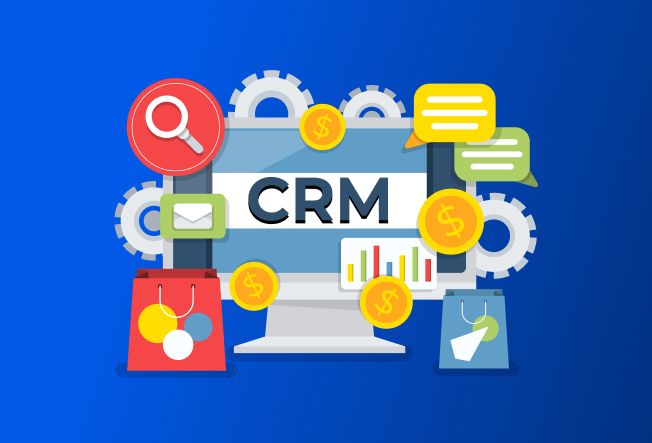Self-Service Web Portals in Dynamics 365: A Guide to Getting Started
Oct 30, 2023 Aiswarya Madhu
Customer engagement is paramount for business success, and Dynamics 365 Portals, now rebranded as Power Pages, play a pivotal role in nurturing these connections.
These web extensions offer secure access to CRM data for different user groups, enhancing customer self-service, promoting community engagement, facilitating collaboration with partners, empowering employees through HR features, and optimizing vendor interactions in supply chain management.
In this comprehensive guide, we will delve deep into how Self-Service Web Portals in Dynamics 365 be implemented and customized to transform your business processes.
On this page
What are Self-Service Web Portals in Dynamics 365?
Dynamics 365 Customer Self-Service Portals are interactive platforms that empower customers by giving them direct access to the information and resources they need. These portals are designed to enhance customer experience, offering users autonomy in managing their interactions with a company.
These self-service portals in Dynamics 365 serve as a centralized hub where customers can find knowledge base articles, engage in community forums, and manage their service cases. This not only speeds up the resolution of inquiries and issues but also reduces the workload on customer service teams.
Explore our comprehensive guide to maximize the potential of customer service in Dynamics 365
Key Features & Benefits of Dynamics 365 Self Service Portals
Knowledge Base Access
The Knowledge Base feature in Dynamics 365 Self-Service Portals acts as a centralized repository of articles and guides that allow customers to independently resolve their queries. This is particularly beneficial in the retail sector where customers can access troubleshooting guides or detailed product information. This not only enhances the shopping experience by providing immediate assistance but also reduces the workload on customer service teams during peak periods such as holidays. In the healthcare industry, patients can access a wide array of informational content regarding common medical queries or billing information, which empowers patients while reducing the administrative burden on healthcare facilities.
Case Management
The Case Management functionality enables customers to initiate, view, and track their service requests or complaints through a transparent and user-friendly interface. This feature is incredibly useful in government sectors where transparency and efficiency in handling citizen requests, such as permit applications or service requests, are crucial. It provides citizens with real-time updates and reduces follow-up calls to government offices. Similarly, in the telecommunications industry, customers can report service issues and track the resolution process, enhancing trust and satisfaction by keeping them informed throughout the process.
Service Scheduling
Service Scheduling through the portal allows customers to book appointments or services at their convenience without needing to call a service center. This is particularly advantageous in the healthcare sector where patients can schedule, reschedule, or cancel their appointments based on real-time availability, significantly improving patient convenience and reducing no-shows. In the automotive industry, customers can book servicing appointments for their vehicles based on the availability of slots, which streamlines operations and enhances customer satisfaction.
Community Engagement
Community Engagement tools such as forums and discussion boards create a platform for customers to interact, share solutions, or provide product feedback. In the technology sector, this feature can create a robust community where users help each other troubleshoot issues or share usage tips, reducing the pressure on tech support while fostering a loyal user community. In the educational sector, it facilitates a collaborative environment where students and teachers can share resources and collaborate on projects, enriching the learning experience.
Feedback and Rating Systems
This feature allows businesses to collect actionable feedback directly from the users of the portals. In the hospitality industry, guests can rate their stay and services, providing valuable feedback that can be used to immediately address any issues and improve service quality. For e-commerce platforms, customer reviews and ratings of products enhance transparency and aid other customers in making informed purchasing decisions, which can also help businesses improve their product offerings and customer service strategies.
Discover advanced Microsoft Dynamics 365 customizations to tailor your system. Read the comprehensive blog for insights into optimizing D365 functionalities.
Want to elevate your business with a customized Dynamics 365 Self-Service Portal?
How to Set Up Self-Service Web Portals in Dynamics 365
Planning: Begin by conducting a survey or gathering feedback from your customers to understand their common issues and needs. For instance, if you are an e-commerce business, your customers might benefit from a portal where they can manage returns, track shipments, and edit orders. Define the scope based on these insights and prioritize functionalities like order management, real-time tracking, and self-service return processing that will deliver the most value.
Choosing the Right Template: Dynamics 365 offers a variety of portal templates, such as Customer Self-Service, Partner Portal, and Employee Self-Service. For example, if your goal is to enhance customer interactions, the Customer Self-Service template would be appropriate. This template comes with pre-configured features like case management, knowledge base, and community forums, which can be customized further to suit specific needs.
Customization and Integration: Tailor the chosen template to reflect your brand’s visual identity and tone of voice to ensure consistency across all customer touchpoints. For example, customize the color scheme, logo placements, and portal layout to match your website. Integrate the portal with existing Dynamics 365 CRM applications to allow seamless data flow and ensure that any updates made by customers on the portal are reflected in the CRM system in real-time. This may require the expertise of developers skilled in Microsoft Power Apps and Dynamics 365 integrations.
Testing and Launch: Conduct comprehensive testing phases including user acceptance testing (UAT) where actual users test the portal in a controlled environment to provide feedback on the user experience. Address any bugs or user experience issues found during UAT. For instance, ensure that the navigation is intuitive, and that forms and case submissions are functioning correctly without errors. Once testing is complete and the portal meets your standards, proceed to launch.
Ongoing Support and Maintenance: Post-launch, gather user feedback continually to identify areas for improvement. Regularly update the portal to refine features, add new functionalities based on user demand, and keep the technology up-to-date with the latest Dynamics 365 updates. For example, if users express the need for quicker access to support, consider integrating a chatbot that can answer FAQs or direct queries to the appropriate channels.
📊Tip to Customize Self-Service Portal
Power Apps is a suite of apps, services, and connectors that provides a rapid application development environment to build custom Microsoft D365 Customer Portal for your business needs. As a part of Microsoft’s business application platform, Power Apps enables anyone in an organization to build web and mobile applications without needing to write code.
- Rapid Development: Accelerate the app development process by allowing users to build feature-rich apps quickly with a minimal learning curve.
- Customization and Flexibility: Easily tailor applications to fit business needs, enhancing functionality and user experience.
- Integration Capabilities: Seamlessly integrate with Microsoft 365, Dynamics 365, and other third-party services to enhance workflow automation and data consistency across systems.
- Cost-Effectiveness: Reduce development costs with a low-code platform that enables non-developers to create solutions, decreasing the dependency on IT resources.
The Importance of a Support Partner for Your Dynamics 365 Self-Service Portal
Navigating Customization Complexity
Customizing your self-service portal to meet specific business needs and integrate seamlessly with existing systems requires in-depth knowledge of Dynamics 365 and its capabilities. For example, aligning the portal’s design with your brand while ensuring it performs optimally across different devices involves detailed CSS and JavaScript coding, which may be beyond the skill set of your in-house team.
Handling Integration Challenges
Dynamics 365 CRM Portals need to integrate with various other systems such as CRM, ERP, or external databases, each potentially using different data formats and protocols. A technical support provider can help manage these integrations, ensuring data consistency and flow. For instance, integrating your portal with an ERP system to allow real-time inventory checks and order updates can be complex, requiring API management and security considerations.
Ensuring Continuous Updates and Compliance
Microsoft frequently updates Dynamics 365, introducing new features and security updates. Keeping your portal aligned with these updates without disrupting existing functionalities can be a daunting task. Your technical ally can bring this expertise to the table, allowing you to elevate your portal’s capabilities. For instance, they could implement AI-driven chatbots for user assistance or integrate Power BI to track user engagement and support metrics. ensures that your system is always up to date, leveraging new capabilities and maintaining compliance with the latest data protection regulations, which is particularly crucial if your portal handles sensitive customer information.
Expertise in Advanced Features
To fully exploit the capabilities of a Self-Service Web Portal in Dynamics 365, like implementing AI for predictive insights or using Power BI for advanced analytics on portal usage, specialized skills are needed. A support partner brings this expertise, allowing you to enhance your portal beyond basic functionalities. For example, adding AI-driven chatbots to guide users through troubleshooting steps or integrating Power BI to visualize user engagement and support ticket trends.
Proactive Problem Solving and Support
Unexpected issues such as downtime, data synchronization errors, or security breaches can significantly impact user satisfaction and trust. A technically sound consultant will be able to offer proactive monitoring and rapid response to such issues, minimizing downtime and mitigating any potential damage.
Training and User Adoption
A successful D365 customer self-service Portal implementation is not just about technology but also ensuring that your staff and customers adopt it effectively. A support partner can provide comprehensive training and support materials, helping users to make the most of the portal functionalities. They can also offer ongoing support and feedback loops to continuously improve the user experience based on real-world usage.
Explore Dynamics 365 Self-Service Portals with Nalashaa Digital
Dynamics 365 Portal Pricing Overview
Authenticated Users: Access for authenticated users is charged per unique user login, which provides up to 24 hours of access. Multiple logins within this period are counted as a single billable session.
Anonymous Users: Page views for anonymous users are billed based on volume, ideal for public-facing portals where user authentication isn't required.
Cost Implications
Starting rates are approximately $200 per month for 100 daily logins and $100 per month for 100,000 page views, with discounts for high-volume usage.
How Nalashaa Digital Can Help You?
While Power Apps Portals provide a robust foundation, businesses often require specialized customization to meet their unique needs. This is where expert guidance becomes invaluable. Nalashaa Digital specializes in building custom self-service portals tailored to specific business requirements. Here are some potential areas where we can help you:
User Experience Enhancement
Intuitive Interface: Customizing the portal's layout, navigation, and user interface elements to create an intuitive and user-friendly experience.
Personalization: Implementing personalized user experiences based on customer profiles and preferences.
Responsive Design: Ensuring the portal is responsive, providing seamless experiences across various devices and screen sizes.
Localization: Adapting the portal content and language based on the user's location and language preferences.
Feature Expansion
Custom Modules: Adding custom modules or sections tailored to the industry-specific needs of the business.
Integration: Integrating third-party applications, payment gateways, or other systems to enhance portal functionality.
Advanced Search: Implementing advanced search capabilities for users to quickly find relevant information.
Notification Systems: Creating custom notification systems, such as email alerts or in-app notifications, to keep users informed about updates and activities.
Data Management and Security
Data Customization: Customizing how data is displayed, entered, and processed within the portal.
Role-Based Access Control: Implementing granular access control to restrict certain sections or features based on user roles.
Data Encryption: Enhancing data security through encryption methods to protect sensitive information.
Customer Engagement Tools
Chatbots: Integrating chatbot functionalities for real-time customer support and query resolution.
Feedback Mechanisms: Creating custom feedback forms and surveys to gather customer opinions and improve services.
Social Media Integration: Integrating social media platforms for seamless social interactions and sharing within the portal.
Analytics and Reporting
Custom Reports: Designing custom reports and dashboards to provide in-depth insights into user behavior, engagement metrics, and portal performance.
Predictive Analytics: Implementing machine learning algorithms for predictive analytics, enabling businesses to anticipate customer needs and preferences.
Compliance and Regulations
GDPR Compliance: Ensuring the portal aligns with GDPR regulations, especially concerning user data privacy and consent management.
Industry Compliance: Customizing the portal to comply with specific industry regulations and standards relevant to the business sector.
Ongoing Support and Maintenance
Monitoring and Updates: Providing continuous monitoring of portal performance and applying necessary updates to ensure optimal functionality.
User Training: Offering training sessions and resources to educate users about new features and functionalities.
Bottom Line
In the journey to create memorable customer experiences, businesses must recognize that one size does not fit all. A personalized touch, intuitive interfaces, seamless interactions, and anticipatory services are the currency of the digital era.
At Nalashaa Digital, we specialize in providing tailored solutions through custom Microsoft Dynamics 365 Portals. Whether it's streamlining customer service processes, enhancing employee productivity, or improving partner collaboration, we’re ready to assist you in developing a portal that drives tangible results.
Connect with us to discover how a customized Dynamics 365 portal can transform your business interactions and outcomes.
Frequently Asked Questions
- Customer Self-Service Portal: Ideal for B2C interactions where customers expect quick solutions and prefer to manage their interactions independently.
- Employee Self-Service Portal: Helps employees find information related to HR policies, payroll, and internal requests, fostering a self-reliant workplace culture.
- Community Portal: Enables a shared space for users to discuss ideas, solve problems, and collaborate, building a knowledge community.
- Partner Portal: Designed for B2B environments, it facilitates smoother transactions, information sharing, and integration with partner ecosystems.
Recent Posts

Agentic AI vs. AI Agents [Misunderstanding Will Cost You Big]
Jun 23, 2025

5 Best CRMs for Social Media Marketing [2025 Updated List]
Jun 09, 2025

Why Dynamics 365 Sales is Important for Sales Teams?
Jun 09, 2025
Category
Our Expertise
About Author

Aiswarya Madhu
Aiswarya Madhu is an experienced content writer with extensive expertise in Microsoft Dynamics 365 and related Microsoft technologies. With over four years of experience in the technology domain, she has developed a deep understanding of Dynamics 365 applications, licensing, integrations, and their role in driving digital transformation for organizations across industries.
Never Miss News
Want to implement Dynamics 365?
We have plans which will meet your needs, and if not we can tweak them around a bit too!


